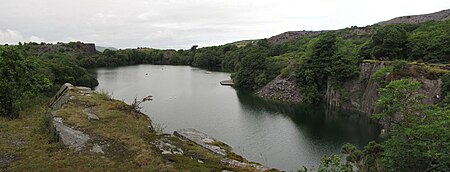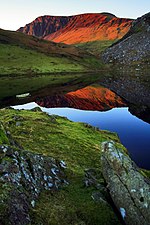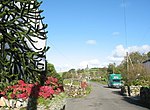Dorothea quarry
Cornish enginesDiving quarries in the United KingdomDyffryn NantlleLlanllyfniPreserved beam engines ... and 2 more
Slate mines in GwyneddUse British English from December 2020

Dorothea quarry is a disused slate quarry in the Nantlle Valley area in North Wales. It covers a large area near the village of Talysarn and contains three flooded deep lakes.
Excerpt from the Wikipedia article Dorothea quarry (License: CC BY-SA 3.0, Authors, Images).Dorothea quarry
Ffordd y Parc,
Geographical coordinates (GPS) Address Nearby Places Show on map
Geographical coordinates (GPS)
| Latitude | Longitude |
|---|---|
| N 53.025 ° | E -4.2833333333333 ° |
Address
Ffordd y Parc
Ffordd y Parc
LL54 6DP , Llanllyfni
Wales, United Kingdom
Open on Google Maps









